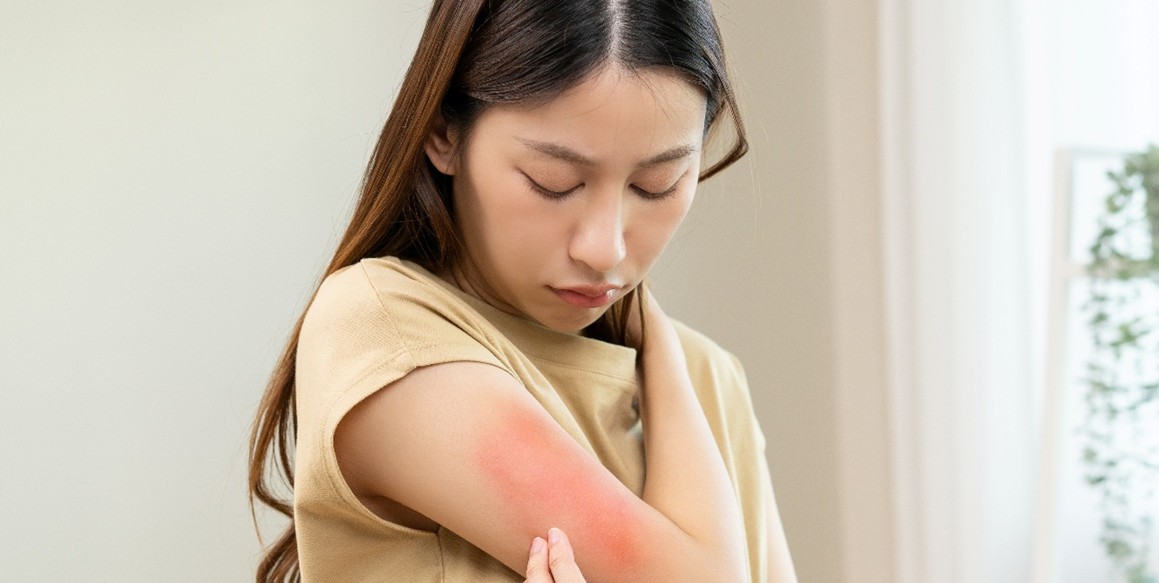What is intertrigo?
Intertrigo is a rash that usually affects the folds of the skin, where the skin rubs together or where it is often moist. This rubbing can cause a breakdown in the top layers of the skin, causing inflammation and a rash. The breakdown of skin makes it easier for bacteria or fungus to develop in this area. It can make the rash worse.
Intertrigo is most common in people who are overweight or who have diabetes. People who have splints, braces, or artificial limbs are also more likely to develop this rash.
Symptoms of intertrigo
Symptoms include a red or reddish-brown rash that can appear anywhere skin rubs together or traps wetness. This rash may burn or itch. The most common areas include:
- Between toes
- In the armpits
- In the groin area
- On the underside of the belly or breasts
- In the crease of the neck
Intertrigo can also affect the skin between the buttocks. The affected skin will often be very raw and may itch or ooze. In severe cases, intertrigo may cause a foul odor, and the skin may crack and bleed.
What causes intertrigo?
Skin folds sitting together and rubbing together causes intertrigo. This skin-on-skin friction creates a warm, moist environment. This environment invites an overgrowth of yeast, fungus, and bacteria. Intertrigo is not contagious. You cannot catch it from or pass it to another person.
How is intertrigo diagnosed?
The best way to know for sure is to ask your doctor. Your doctor will be able to tell if you have the rash by looking at your skin. No special tests are needed, but your doctor may take a sample to determine what type of bacteria or fungus may be present.
Can intertrigo be prevented or avoided?
You can help prevent intertrigo by doing these things:
- Keep skin cool and dry.
- Do not wear tight shoes or clothing. Wear a bra that has good support.
- Wear clothes made with absorbent fabrics, such as cotton. Avoid nylon or other synthetic (manmade) fibers.
- If you are overweight, try to lose weight.
- After exercising, shower and dry off completely. Use a hair dryer with a cool setting to dry areas that can trap wetness, such as under your arms or breasts.
Intertrigo treatment
For mild cases, your doctor will tell you to keep the affected area of your skin dry and exposed to air. Your doctor may also want to prescribe a topical steroid cream. For certain cases, your doctor may prescribe an antibiotic or antifungal cream. There are also antifungal powders that may help dry the skin. Talk to your doctor about which treatment is right for you.
Living with intertrigo
Intertrigo may come and go. If you know that you are predisposed to getting this type of rash, take precautions. Before physical activity, treat the area with deodorant or with petroleum jelly. Do what you can to keep skin folds dry.




